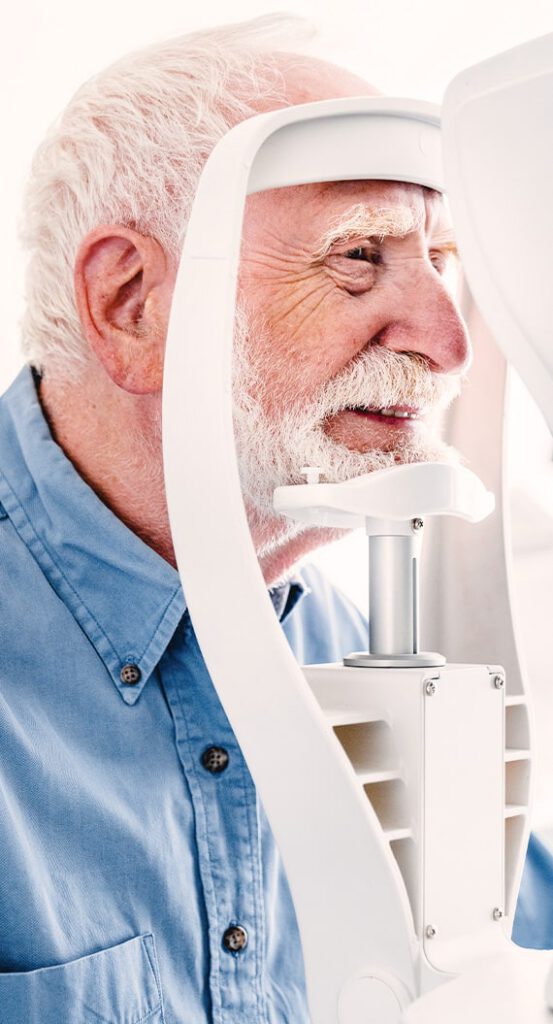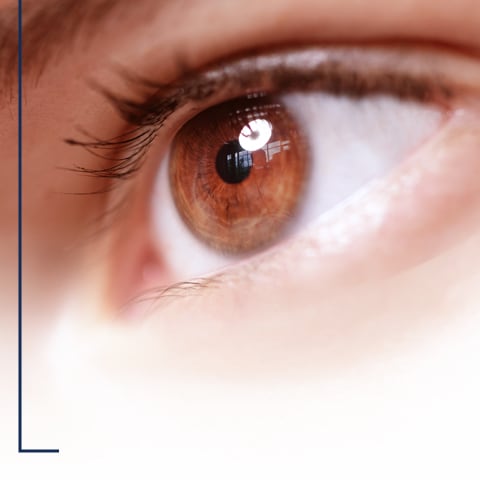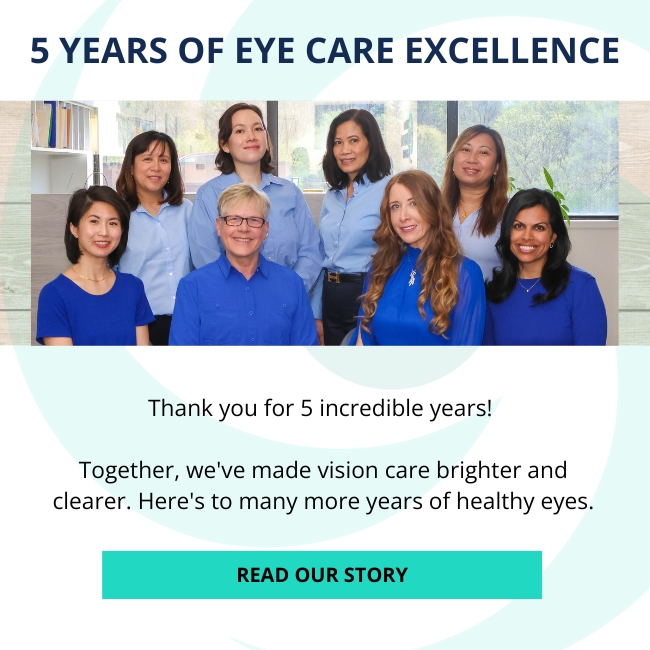Our Approach to Eye Disease

At Toronto Medical Eye Associates, our team is here to help diagnose and manage various forms of eye disease. We use diagnostic technology to treat a number of vision conditions such as cataracts, glaucoma, and age-related macular degeneration.
Book an appointment with us today to explore your options for diagnosing and managing eye disease.

Putting Our Patients First
At Toronto Medical Eye Associates, we believe that early diagnosis is essential when managing eye disease. A comprehensive eye exam can help our team familiarize themselves with your eyes and your unique visual needs.
Your eyes are susceptible to many different diseases, some of which can threaten your long-term vision.
Our approach to eye disease involves early diagnosis and early treatment.

Exploring Different Types of Eye Diseases
Eye diseases can come in various forms, and our dedicated approach to diagnosing and managing them puts our patients first. Learning about the different types of eye disease can help you prepare for treatment.
Cataracts
A cataract occurs when the normally clear lens of your eye becomes clouded. Cataracts eventually cause your vision to become cloudy and obscured in the affected eye. As a result, cataracts can make it difficult to perform daily activities such as reading or driving a vehicle.
As the disease develops, prescription glasses can help you overcome cataracts. Still, your symptoms may worsen as time progresses, and surgery is required.
Some common signs and symptoms of cataracts can include:
- Difficulty driving at night
- Fading or yellowing of colours
- Needing better light for reading
- Sensitivity to light and glare
Glaucoma
Glaucoma is a group of eye conditions that target and damage your optic nerve. This damage to the optic nerve can lead to peripheral visual field loss.
Risk factors associated with glaucoma include:
- Being over the age of 60
- A family history of glaucoma
- Previous eye injuries or surgeries
- Medical conditions such as diabetes, heart disease, and high blood pressure
For more information, please visit our glaucoma clinic page.
Age-Related Macular Degeneration
Age-related macular degeneration (AMD) is an eye disease that blurs your central vision. AMD occurs when aging causes damage to your macula, which is responsible for sharp, straight-ahead vision.
AMD is a common condition and is a leading cause of vision loss among older adults. AMD can develop slowly in some and faster in others. There are 2 main types of AMD:
- Dry AMD is the most common form of the disease and occurs when your macula thins with age. Dry AMD progresses in 3 stages, early, intermediate, and late. This form of AMD most often progresses slowly over the years. While there is no treatment for AMD, lifestyle changes such as a healthy diet or more physical activity can lower the risk of development.
- Wet AMD is the less common form of the disease and is a later-stage type of AMD that causes faster and more severe vision loss. Dry AMD can quickly develop into late-stage wet AMD. This type of AMD occurs when abnormal blood vessels grow in the back of your eye and damage your macula.
Regular eye exams can help our team monitor the progression of AMD and prepare a treatment plan.
Being Cautious with Eye Disease

At Toronto Medical Eye Associates, we strive to provide comprehensive eye disease diagnosis and management services. We use diagnostic technology to help create a treatment plan for your unique visual needs.
Book your appointment today to get a comprehensive eye exam and monitor your eyes for developing vision issues.
Our Services
Say Goodbye to Dry Eye
Do you suffer from dry eye symptoms?
Dry eye is a common condition that can cause your eyes to feel uncomfortable and irritated. Don’t let dry eye stop you from living your life. Dr. Taji is a trusted voice on dry eye disease and has hosted many lectures and presentations on diagnosis and treatment.
You can feel confident in your dry eye treatment with our team. Contact us today to book your dry eye evaluation and get relief sooner.
Our Location
You’ll find our clinic around the corner from North York General Hospital, just up from the Don River and Betty Sutherland hiking trail.
Please don’t hesitate to contact us if you have any trouble finding us!

Our Address
- 1333 Sheppard Avenue East, Suite 343
- North York, Ontario M2J 1V1
Contact Information
- 416-494-2020
- 416-494-0010
- info@torontomedeye.ca
Our Hours
- Monday – Thursday: 8:30 AM – 5:00 PM
- Friday: 8:30 AM – 12:00 PM
- Saturday & Sunday: Closed







